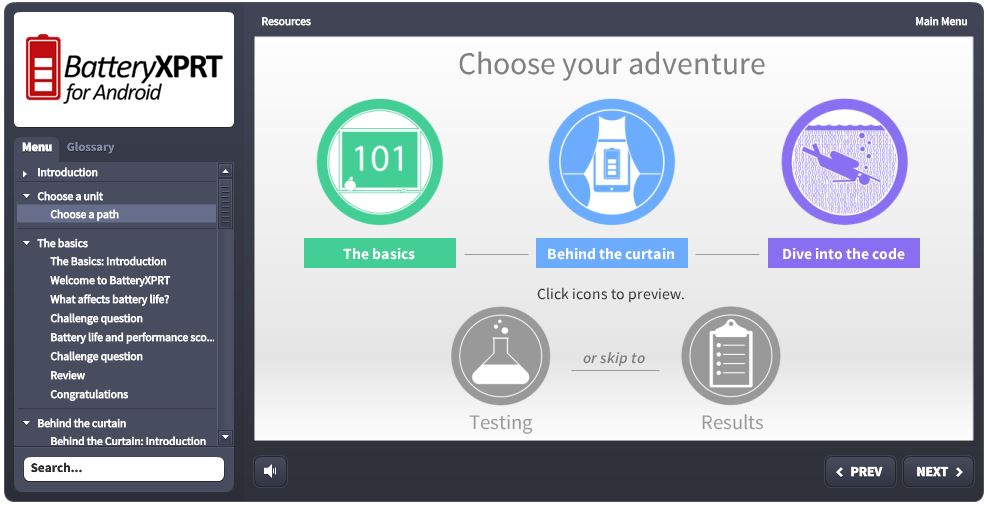We have a couple of exciting announcements today! A few weeks ago, we promised something special for BatteryXPRT, and we can now show off the all new BatteryXPRT training course. The BatteryXPRT training course is an online, interactive, multi-media tool designed to make learning about the benchmark easy and enjoyable.
You can easily navigate to detailed videos and graphics explaining how to build the benchmark from source code, how to configure your device, how results are calculated, and much more. It’s like the BatteryXPRT design document, white paper, and user manual have come to life!
In addition to following the link above, you can also find the course at BatteryXPRT.com. The course works on most popular browsers in Windows and OSX.
In other news, we have a name for the Chrome benchmark, CrXPRT. Thanks for all the suggestions, and let us know what you think of the name.
As promised last week, the CrXPRT Design Document is available to the development community today. You’ll find it on the CrXPRT tab in the members’ area. If you’re not yet a member, we’d love for you to join here.
If you have any questions about CrXPRT of feedback on the BatteryXPRT course, feel free to contact us at BenchmarkXPRTsupport@principledtechnologies.com.
Eric













